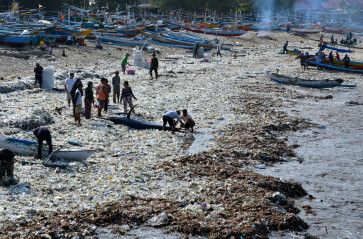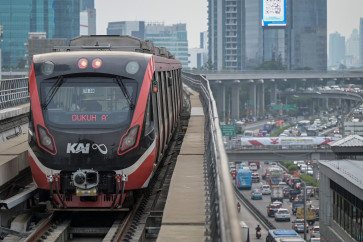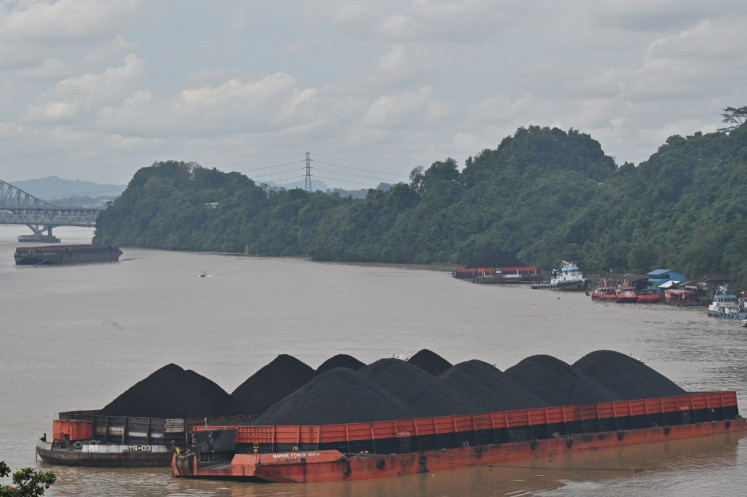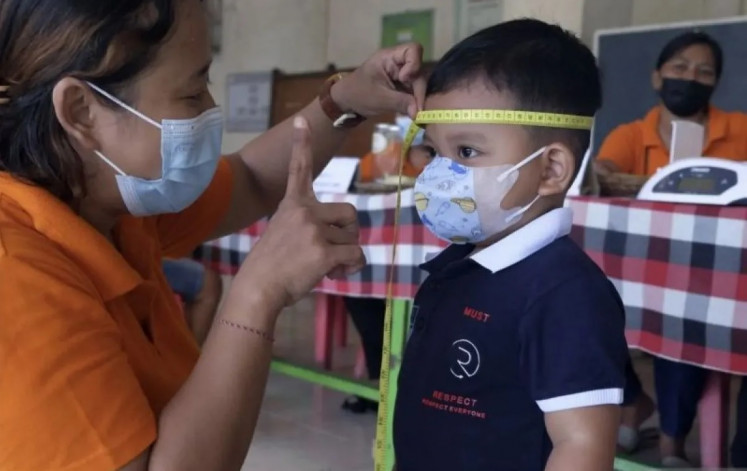US-ASEAN’s inclusive prosperity overlooks the region’s homophobia
Homosexuality is not illegal in Indonesia, but morality and public unrest have been frequently used to justify raids and arrests.
Change text size
Gift Premium Articles
to Anyone
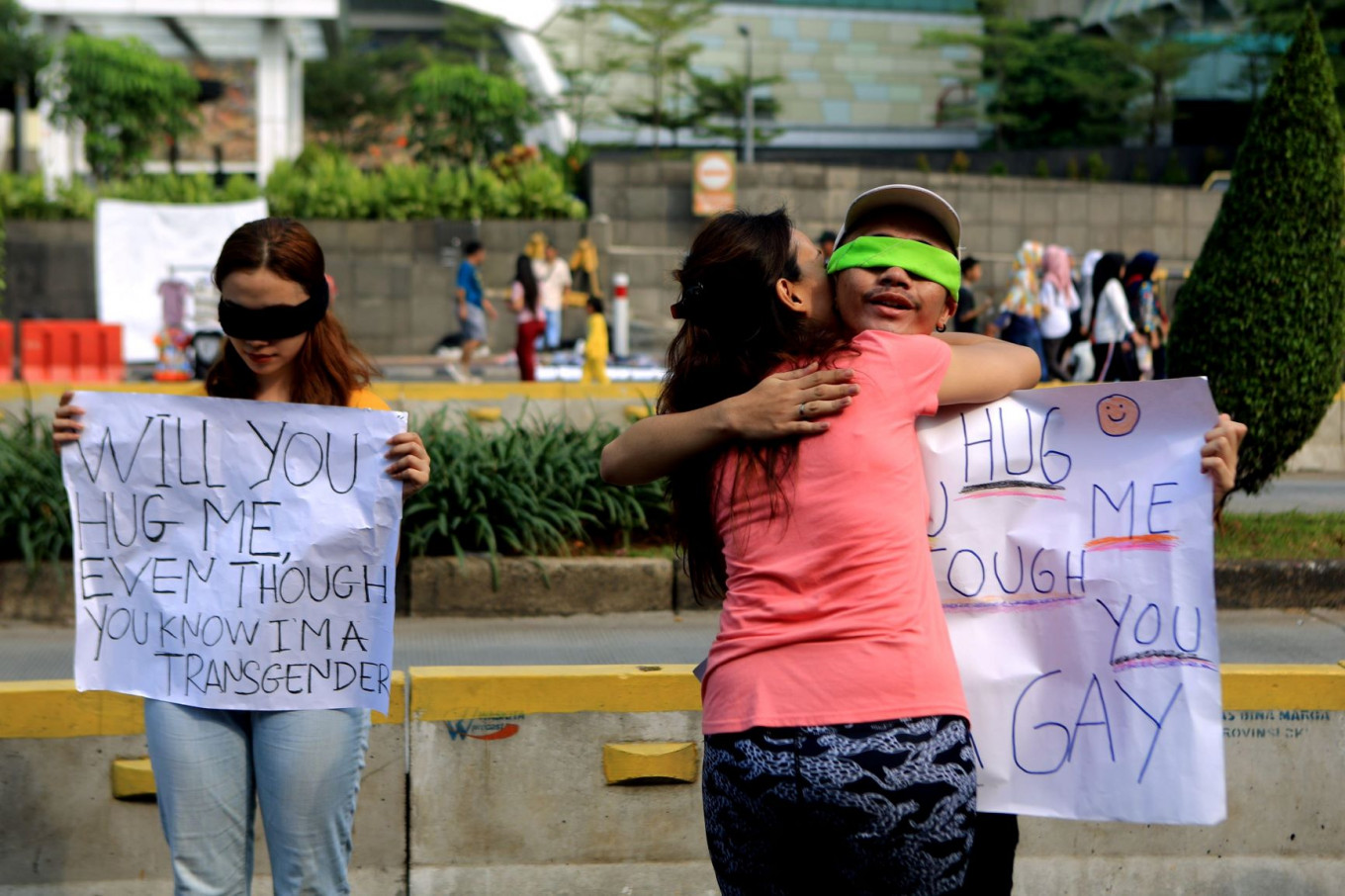
T
he United States-ASEAN special summit in Washington, DC resulted in a joint commitment in areas of, among other things, health security, maritime cooperation and climate change. The White House announced US$150 million in new initiatives for ASEAN to achieve “inclusive, broad-based prosperity” for a combined 1 billion people.
While the result seems promising, the several mentions of economic inclusivity resemble no more than just political jargon. This is because in Southeast Asia, or in Indonesia to say the least, not all members of society can participate and enjoy economic growth due to ongoing political discrimination.
When US-ASEAN leaders meet in Washington, DC, the lesbian, gay, bisexual and transgender (LGBT) community in Indonesia was frightened by a backlash that started from an interview with a gay couple. The interview, published on the YouTube channel owned by Deddy Corbuzier, a magician-turned-presenter with 18 million followers, quickly escalated into a cascade of threats from conservative religious groups to the community.
Following protests from conservative groups, the video was taken down and the host made a public apology. However, politicians under President Joko “Jokowi” Widodo’s administration have taken this opportunity to discuss a renewed attempt to criminalize homosexuality, one that was suspended in 2017.
Even worse, these politicians blatantly discussed it on Twitter for the public to see, ignoring that a discussion of the sort would further jeopardize the safety of the LGBT community. These politicians have decided it is right to criminalize some of their own taxpayers, instead of ensuring that the community has the same rights like everyone else.
Homosexuality is not illegal in Indonesia, but morality and public unrest have been frequently used to justify raids and arrests. While the national law does not criminalize the LGBT community, discriminatory bylaws targeting them are already in place in four provinces. Hate speech and physical assaults have existed much longer.
National LGBT advocacy group Arus Pelangi has documented 1,850 victims of persecution from state and non-state actors from 2006 until 2018. While the Human Rights Watch reported that 2016 marked a rising in violence against the sexuality and gender minority group. In most cases, homophobia is not only permitted but even sponsored by the state.
Indonesia is not the only ASEAN country where same-sex relations are punishable by law. Brunei and Malaysia, for instance, have taken a tougher stance toward the community. In Singapore and Myanmar, while discriminatory laws exist, the community is allowed to conduct pride-like events. LGBT communities in Thailand, Vietnam, Cambodia, Laos and the Philippines have enjoyed greater acceptance since politicians have spoken about anti-LGBT discrimination.
This is ironic since ASEAN members have committed to the protection of human rights as stipulated in the ASEAN Human Rights Declaration. However, the declaration itself never included people from sexual or gender minority backgrounds as part of its subjects. This has led to a loose-fitting evaluation regarding the protection of the LGBT community in the region. Without clear protection, members of the community are left in limbo.
What does this mean for the US-ASEAN summit?
First and foremost, all types of political discrimination will determine access to the economy. Reports have documented that most members of the LGBT community are disowned by their families and are unable to finish higher education.
A study by the Asia Pacific Transgender Network (APTN) and Gaya Warna Lentera Indonesia (GWL-Ina) found that transgender women were unable to work in the formal sector, making them concentrate in the informal sector such as working in beauty, entertainment and sadly, prostitution. Transgender women were disproportionately made financially vulnerable since they could not obtain identity cards that are crucial to access public services such as banks, health insurance and the social security system.
So, when US-ASEAN leaders refer to inclusive economic growth in their joint statement, who did they include? The current sociopolitical situation vividly shows that not all members of the community can fully participate in, nor benefit from, economic growth. They are prevented from contributing their brilliant skills, talents and education, just because of who they are. They are also prevented from enjoying the fruits of the said investment.
Whichever direction the leaders decide to go, these LGBT individuals are designed to be blocked from savoring it. Unless there is firm protection of the minority groups, inclusivity serves as no more than a marketing slogan.
For too long, Indonesia and a number of other ASEAN countries have been permitted to establish cooperation with inclusive economy jargon, but have never really attended to the intricacies of domestic political exclusion. We believe that these countries can no longer benefit from the ignorance of Washington.
While the summit is an economic forum at its core, all visions should not be isolated from other factors. Because once again, economic access is still largely determined by political decisions.
As US-ASEAN leaders regroup in November, it is time to put more attention to this overlooked problem. Ensuring equitable distribution of wealth will take much of the budget and time. But dismantling discriminatory laws costs only political will.
If that is too much, politicians must just refrain from making statements that compromise the LGBT community’s safety.
***
Rio Tuasikal is a journalist with an MA in media and communications from Goldsmiths, University of London. Dina Listiorini is a lecturer and researcher at Atma Jaya University of Yogyakarta, focusing on media and sexuality studies

